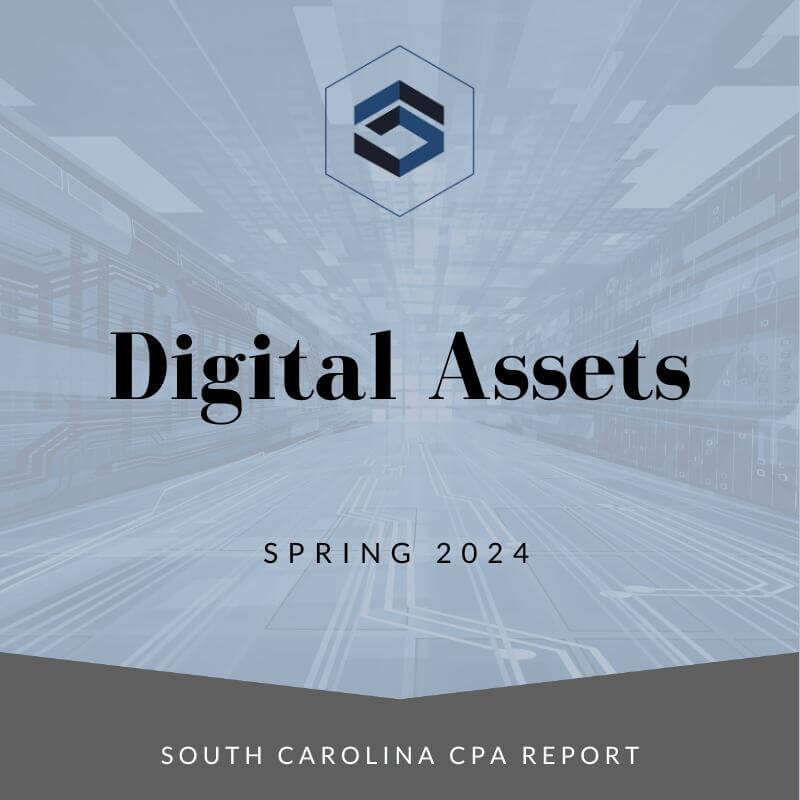Over the past few years cryptocurrency has been a very hot topic, as evidenced by the responses to the 2021 Financial Accounting Standards Board (FASB) Invitation to Comment (ITC). In response to the ITC, stakeholders emphasized the need to improve the accounting for and disclose of information about crypto assets, making it a top priority for the Board.
The main concern driving this urgency is that the current accounting method, treating crypto assets as indefinite-lived intangible assets and using a cost-less-impairment model, does not provide investors with decision-useful information. More specifically, only accounting for decreases in the value of crypto assets, without considering increases, until they are sold, doesn’t provide a clear picture of the assets’ underlying economics and an entity’s financial position.
Towards the end of last year, on December 13, 2023, the FASB issued ASU 2023-08, Accounting for and Disclosure of Crypto Assets, to improve the accounting for and disclosure of crypto assets. Instead of using the cost-less-impairment models, crypto assets will now be measured based on their fair value if the crypto assets are within scope.
Entities are within scope when they meet all the following criteria:
- Meet the definition of intangible assets as defined in the Codification.
- Do not provide the asset holder with enforceable rights to or claims on underlying goods, services, or other assets.
- Are created or reside on a distributed ledger based on blockchain or similar technology.
- Are secured through cryptography.
- Are fungible.
- Are not created or issued by the reporting entity or its related parties.
Under ASU 2023-08, an entity is required to subsequently measure assets that meet those criteria at fair value, with changes recognized in net income each reporting period.
Aside from changing the measurement of crypto assets, the ASU also requires that an entity present crypto assets measured at fair value separately from other intangible assets in the balance sheet and that changes from the remeasurement of crypto assets be presented separately from changes in the carrying amounts of other intangible assets in the income statement (or statement of activities for not-for-profit entities).
The ASU also includes new disclosure requirements. For annual and interim reporting periods, entities should disclose:
- The name, cost basis, fair value, and number of units for each significant crypto asset holding.
- aggregate fair values and cost bases of the crypto asset holdings that are not individually significant.
- For crypto assets that are subject to contractual sales restrictions, the fair value of those crypto assets, the nature and remaining duration of the restriction(s), and the circumstances that could cause the restriction(s) to lapse.
In addition, for annual reporting periods, entities should disclose:
- A rollfoward, in the aggregate, of activity in the reporting period for crypto asset holdings, including additions (with a description of the activities that resulted in the additions), dispositions, gains, and losses.
- For any dispositions of crypto assets in the reporting period, the difference between the disposal price and the cost basis and a description of the activities that resulted in the dispositions.
- If gains and losses are not presented separately, the income statement line item in which those gains and losses are recognized.
- The method for determining the cost basis of crypto assets.
ASU 2023-08 is effective for all entities for fiscal years beginning after December 15, 2024, including interim periods within those fiscal years. Early adoption is permitted for both interim and annual financial statements that have not yet been issued. If an entity adopts the amendments in an interim period, it must adopt them as of the beginning of the fiscal year that includes that interim period. Additionally, ASU 2023-08 requires a cumulative-effect adjustment to the opening balance of retained earnings as of the beginning of the annual reporting period in which an entity adopts the amendments.


